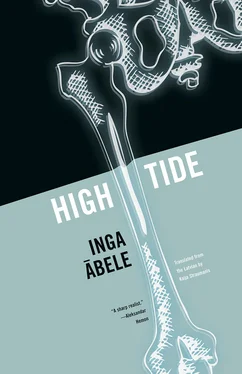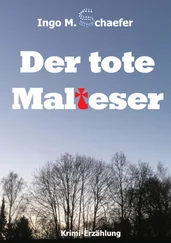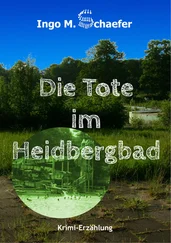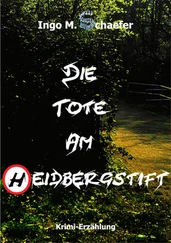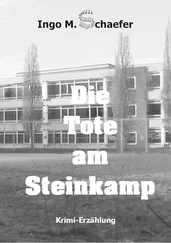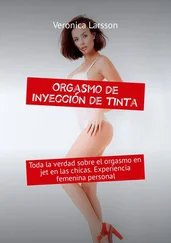So high.
You’ll take out a burning ticket.
The train will come, sputtering and cold. There’s a terribly cold emptiness under my heart; it counts your steps to the train stairs. Look out the window before your view is blocked by the grey bridges! A cat warms itself by a fire on the platform.
Wave goodbye.
“Here’s your prison, honey!”
Ieva presses five lats into the fat, hairy paw of the taxi driver and slams the door. She didn’t see anything — not the road, the church, the overpass! Not even the pretty sandy clearing before the prison.
There’s a new broad, ugly staircase leading to the prison accounting department waiting room, and a large window at the landing. Ieva’s silhouette is visible in the sunlight as she heads to the second floor. Everything smells strongly of whitewash.
After that is a long hallway with many doors — all on the left-hand side. The hallway looks robbed and forgotten. Ieva tries every other door, but each one is locked. Only the second to last door opens.
The room is filled with light. The outskirts, clearings, the second floor. A Soviet-era building with gigantic windows. A coffee cup sits on the windowsill; curls of steam rise from the black liquid, feeling their way upwards and forming condensation on the edge of the blinds, backlit by the sun.
Three women raise their heads from where they sit at their desks. One of them is eating a salad from a plastic container.
Ieva says:
“I need to pay. For a visit.”
“Ludmilla!” the women call out.
The one eating carefully wipes her fingers in a paper napkin and opens a ledger.
Coffee steaming away on the sunny windowsill. The smell of mayonnaise from the salad.
The woman by the window turns, takes the coffee cup, blows on it, and drinks. The woman by the door turns a radio knob; a jumble of sounds as the signal jumps from station to station.
Ieva counts out her money for the woman at the middle desk and signs the ledger.
Ten or so people are waiting in the prison yard for visitations. A guard comes out to them, loudly calls a name, and the person called goes inside. Ieva and an older woman with two fully-packed plastic bags remain outside. The old woman fishes hard candies out of her pocket, tosses them in her mouth, and grinds them like a horse.
A group of flushed men runs by — young guards in army boots. They run, buttoning up their jackets, their guns dragging on the ground. Ieva watches them.
The guard comes back outside and calls Ieva’s name. She follows him to the passport window, holds out her passport, but then quickly pulls it back and puts it in her pocket.
She mumbles:
“I… no… I have to go somewhere else!”
A stern-looking officer brings his freckled face close to the glass.
“You’re here for a visit?”
“I — just — I’m dropping something off.”
“Next window!”
She goes to the next window, takes off Andrejs’s shirt, folds it as best as her trembling hands will let her, and places it on top of the groceries. The official stares in surprise at the half-naked woman in front of her. Let her! Ieva catches a whiff of the bacon. She feels sick.
She pulls her coat on over her bare skin.
Then she rips a page from her notebook and writes: “Everything’s over for real now. Ieva.”
She walks along the sandy road toward town. Now and then she glances back as if she can’t believe it — back at the prison where she’s left Andrejs alone. Ieva walks on, letting go of something close with each step she takes, violently cutting the ties that would otherwise take forever to untangle painlessly. She makes it to the merciless core of freedom — traitor! — the chaos of air, fire, and earth. Don’t describe it as beautiful, that’s what Andrejs would have said, but how else can she put it? That second in which, despite everyone and everything, you take those first steps on your path, in your own moment of being? Because Ieva can’t go on lying anymore.
So long, marriage! Take care, church, and the words of the pastor — in sickness and in health, for richer or poorer, until death do you part! So long, love — where did you go? Time, come judge me! But no one else is going to do that. I have to judge myself.
And you shouldn’t lie to yourself, shouldn’t lie to anyone — freedom is always right there with you. You just get up one morning and go.
Freedom is always within arms’ reach.
The trip home lasts twice as long because she tries not to think about anything. And when you think of nothing, time drags on. The wheels of the train clang, the thick, grainy August air thumps in the open windows, nothing is happening.
Ieva doesn’t seem aware of herself or others — she stares at the window. It’s growing dark.
Now she’s alone. She’ll have to figure out how to live on — naked, without Andrejs’s shirt. But she wants to put off that train of thought.
People look at her, study her face. People see everything. That’s what the species is like.
She puts on her headphones, “Bright Red,” cloaks herself in the icy fringe of the music. One by one, the passengers break down and dissipate, frozen in frosty crescents. All that remains is the darkness, the darkness, the darkness, and the inviting red eyes of the semaphore, so trustworthy and present along the entire road of life.
So here are the questions: is time long or is it wide?
And the answers? Sometimes the answers
just come in the mail. And one day you get that letter
you’ve been waiting for forever. And everything it says
is true. And then in the last line it says:
Burn this. We’re in record.
Ieva gets out at the Central Station in Riga and keeps walking along the Railway Bridge, crossing the river. Her fingers feel for the Virgin Mary around her neck. No one stops her; she doesn’t think about whether or not she’s allowed to cross here. She wants to throw the Virgin Mary into the deepest part of the Daugava River. Let the stream weave her into the sand and sediment. The Virgin Mary is most definitely on Andrejs’s side, Christ is on his side, and both of them — Mother and Son — look down on Ieva disapprovingly from the heavens.
The Railway Bridge.
Riga shines evenly on both sides.
A black river down the middle. No sweet little Daugava here, friends. It’s a massive current, wide and threatening.
It’s raining.
Trains move in both directions on the bridge. Ieva presses closely against the rail when they go past. The conductors look at her in surprise.
Over the middle of the Daugava Ieva sees a dark figure walking toward her. She slows her pace and crosses to the other side of the bridge. The figure crosses, too. It turns out to be a uniformed Railway Bridge guard with a nightstick on his belt.
“Your permit, please!”
Ieva answers:
“Permit? I don’t have one.”
The guard orders:
“Then you have to go back! You can’t walk on this bridge.”
Ieva looks over his shoulder, the river once again throws the rushing sound of her own blood back into her ears.
“No walking?”
The guard is annoyed:
“No! Like you’re from another planet… No one can walk on the Railway Bridge. Turn around! And fast. Otherwise the police will get involved.”
Ieva goes back, and on the way she rips the Virgin Mary from around her neck and throws her over the rail into the water. Ieva falls into the wet grass next to the bridge supports and pounds the ground with her fists. Why can’t she live to honor this beautiful, thick grass?
A thought suddenly comes to her that has her immediately on her feet.
What if she’s?…
Pregnant!
She trips and stumbles as she moves and only now realizes that she’s completely frozen, hanging around the bridge with just her jacket and no shirt, and in a downpour no less!
Читать дальше
